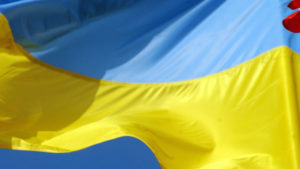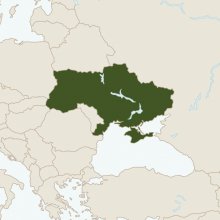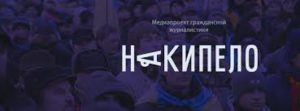
Council of Europe
Ukraine is a front-line state in the struggle between European rule-based order and Russian kleptocratic autocracy. Since the Euromaidan Revolution in 2013–14, Russia has deployed a range of measures – short of an open declaration of war – to undermine Ukraine’s aspirations to build an independent democratic system of governance and integrate into the Euro-Atlantic community, say analysts Mathieu Boulègue and Orysia Lutsevych.
Russia is waging a full-spectrum war against Ukraine, exploiting domestic vulnerabilities to sow
chaos and challenge the state. In this sense, Ukraine can be considered a political ‘laboratory’
of Russian influence on a large scale. Because of its proximity to Russia, the widespread use of the Russian language and Russian infiltration of its security forces, Ukraine is often used by the Kremlin as a testing ground for various coercive measures, they write in Resilient Ukraine:
Safeguarding Society from Russian Aggression, a new paper for Chatham House, the London-based foreign policy think tank:

NDI
Despite military conflict and an increasingly adversarial relationship with Russia, Ukraine has largely maintained its democratic reforms thanks to its resilience and determination to decide its own future. ….President Volodymyr Zelenskyy has demonstrated a genuine willingness to achieve peace and has applied a human-centric approach to managing the conflict. However, his strategy is constrained by a lack of clear actionable steps, an absence of effective coordination between various agencies, and reluctance to engage civil society in decision-making.
Societal cohesion is a necessary element of resilience. Currently, weak civic agency is
challenging this cohesion, with just 10 per cent of the population regularly participating in civil
society and few opportunities for the public to take part in decision-making at the local level, Boulègue and Lutsevych addd, presenting four case studies from the civil society sector that showcase effective responses to Russian disruption and illustrate how civil society in partnership with the authorities is creating resilience dividends:
- IREX: Building cognitive resilience: Low levels of media literacy among Ukrainians leaves the country vulnerable to manipulation and disinformation. In this context, the International Research and Exchanges Board (IREX) has been implementing media literacy courses through the Learn to Discern in Schools programme since 2015….
 Nakipelo media group in Kharkiv: Giving voice to the local community: Participatory politics supported by local media is crucial to societal resilience against disinformation
Nakipelo media group in Kharkiv: Giving voice to the local community: Participatory politics supported by local media is crucial to societal resilience against disinformation
and information manipulation. The independent sociopolitical media group Nakipelo was founded, in Kharkiv in 2014, to reflect the views of citizens and civil society representatives on local events and the general situation in Ukraine….- The Legal Hundred: Defending those who defend Ukraine: The Legal Hundred (Yurydychna Sotnia) is a Ukrainian non-profit organization working on veteran affairs and issues related to defence and security since 2014. It evolved from an online group of pro bono lawyers during the Euromaidan to an extensive network of volunteers and a team of experts who provide legal aid to veterans, draft laws and advocate legislative reform…
 UCMC: Rediscovering local identity: In 2016, the Ukraine Crisis Media Centre (UCMC) engaged museums in small cities – including some cases close to the LoC as well as displaced museums from Donetsk and Luhansk – in a thought-provoking exercise about their own development and role in the community…..
UCMC: Rediscovering local identity: In 2016, the Ukraine Crisis Media Centre (UCMC) engaged museums in small cities – including some cases close to the LoC as well as displaced museums from Donetsk and Luhansk – in a thought-provoking exercise about their own development and role in the community…..
Ukraine’s current resilience capital is precious, Boulègue and Lutsevych conclude. It remains one of the country’s main assets at times of armed conflict and domestic political turbulence and it should be nurtured to enable the establishment of the European rule-based society that so many Ukrainians aspire to.
The research paper was made possible with the support of the National Endowment
for Democracy (NED).







